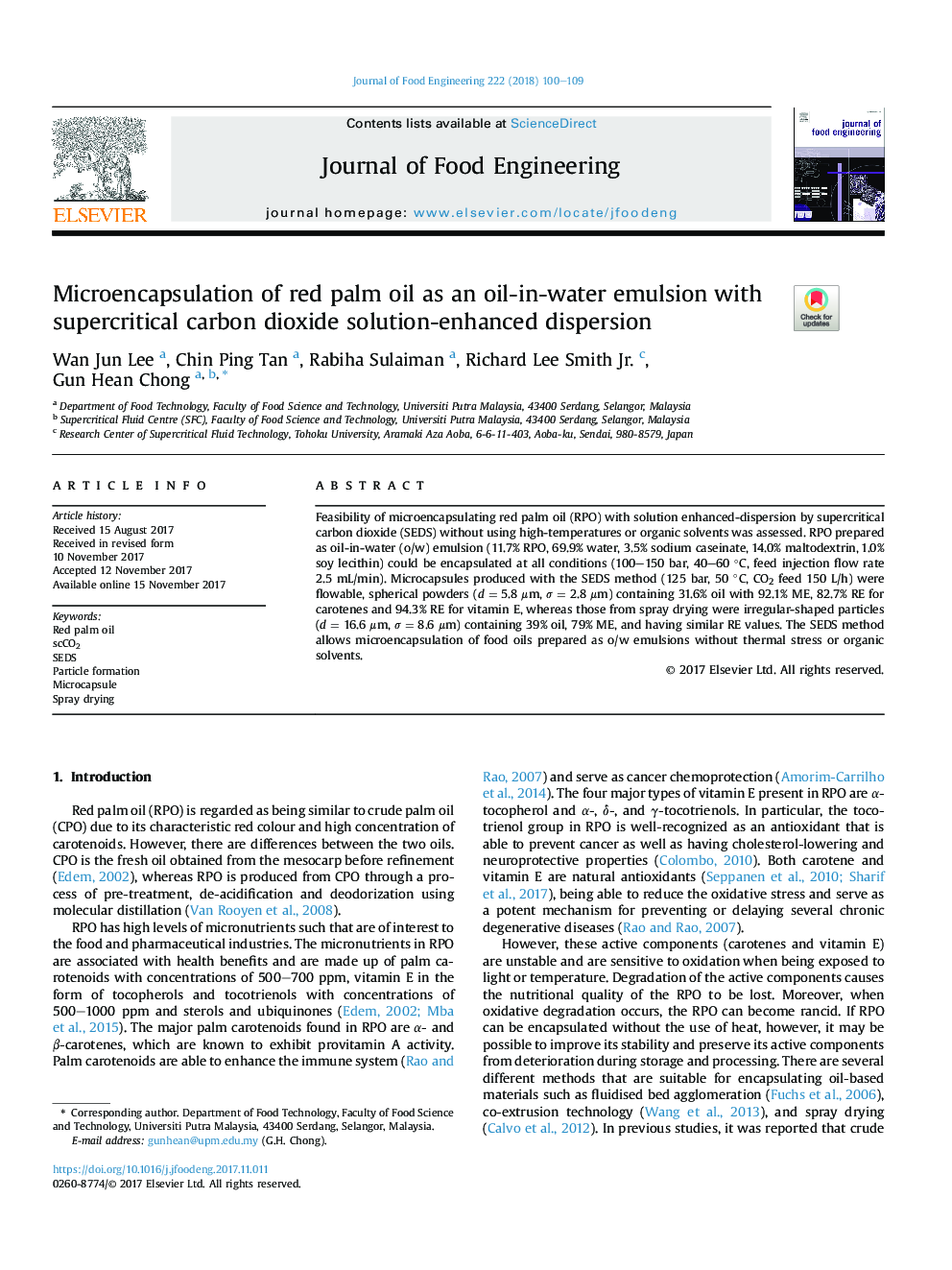| Article ID | Journal | Published Year | Pages | File Type |
|---|---|---|---|---|
| 6664765 | Journal of Food Engineering | 2018 | 10 Pages |
Abstract
Feasibility of microencapsulating red palm oil (RPO) with solution enhanced-dispersion by supercritical carbon dioxide (SEDS) without using high-temperatures or organic solvents was assessed. RPO prepared as oil-in-water (o/w) emulsion (11.7% RPO, 69.9% water, 3.5% sodium caseinate, 14.0% maltodextrin, 1.0% soy lecithin) could be encapsulated at all conditions (100-150 bar, 40-60 °C, feed injection flow rate 2.5 mL/min). Microcapsules produced with the SEDS method (125 bar, 50 °C, CO2 feed 150 L/h) were flowable, spherical powders (d = 5.8 μm, Ï = 2.8 μm) containing 31.6% oil with 92.1% ME, 82.7% RE for carotenes and 94.3% RE for vitamin E, whereas those from spray drying were irregular-shaped particles (d = 16.6 μm, Ï = 8.6 μm) containing 39% oil, 79% ME, and having similar RE values. The SEDS method allows microencapsulation of food oils prepared as o/w emulsions without thermal stress or organic solvents.
Related Topics
Physical Sciences and Engineering
Chemical Engineering
Chemical Engineering (General)
Authors
Wan Jun Lee, Chin Ping Tan, Rabiha Sulaiman, Richard Lee Jr., Gun Hean Chong,
